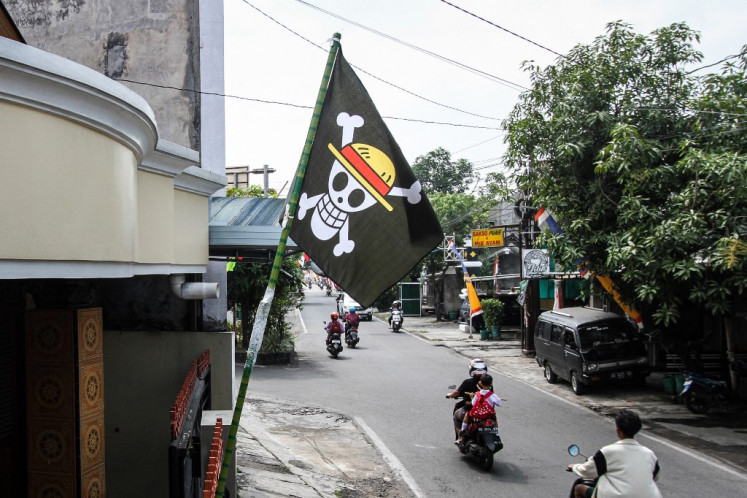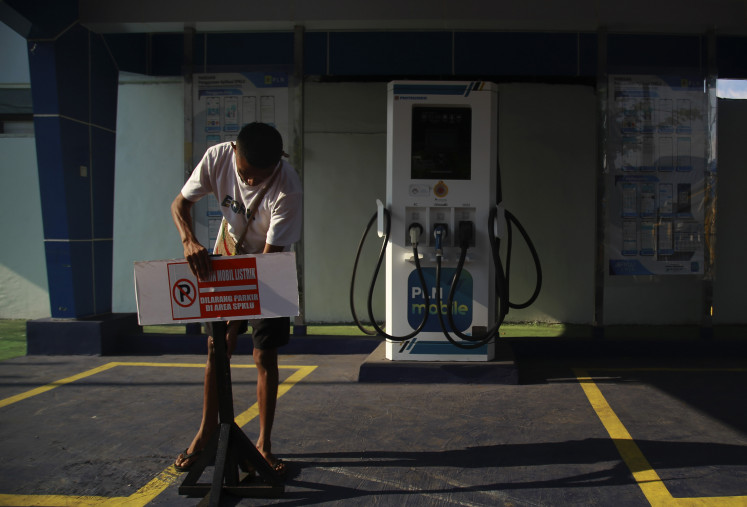Popular Reads
Top Results
Can't find what you're looking for?
View all search resultsPopular Reads
Top Results
Can't find what you're looking for?
View all search resultsInsight: If development is key, rent-seeking must be stopped
With violent conflicts emerging again in Papua, an old problem comes to mind: development must be reassessed to bring beneficial impacts to the Papuan people
Change text size
Gift Premium Articles
to Anyone
W
ith violent conflicts emerging again in Papua, an old problem comes to mind: development must be reassessed to bring beneficial impacts to the Papuan people. This imperative is of course a form of truism. Like any truism, the problem lies not in the statement but in the enactment of its substance. This is true not only for Papua but also for other areas in Indonesia.
No doubt the issue involves endemic problems of failed governance, ranging from sheer incompetence to rampant corruption. But what is hardly noticed even among keen observers is that the notion of development itself has been thoroughly poisoned. It has increasingly degenerated into a series of policies to distribute commercial contracts.
This is widely called rent-seeking. It involves the plundering of development budgets by businesses, politicians and government officials. Much of this budget-plundering is done through infrastructure mega-projects like roads, ports, bridges, airports and others. It is true that many of these development projects can be carried out only with the assistance of specialized expertise agencies, which often involve the business sector. But not all development programs should be carried out this way. Development programs such as those in public healthcare, human rights education, inter-religious dialogue, community food security or environmental improvement are best conducted through the dynamics of community empowerment rather than through business contracts.
Alas, with the dominance of market-based policy, even these community-based development programs have been turned into commercial contracts between the government and the business sector. Instead of improving community welfare, what we see is simply the government budget wasted on ill-conceived activities that have no bearings whatsoever on the plight of the locals. Copious reports have been made of fabricated program activities and expenditures sent to government offices, which then are taken as a basis to state that development programs have been accomplished.
In many places, the spending of these “development budgets” does not even come from the real need of the locals but rather from exploitation by rent-seeking government officials, businesspeople, politicians and other profiteering parties. This is true not only in remote areas but even at the heart of Indonesia’s urban capital. Look at city pavements, lighting, bus shelters or even the TransJakarta lanes that mysteriously replaced the more robust monorail infrastructure. Street pavements that are still in good shape are demolished, only to be replaced with new constructions that are worse in terms of quality just a few months after the previous one was demolished.
Indeed, in most cases the starting point is not a real need but, rather, the greed of rent-seekers to amass lucrative funds from the state budget. So much so that what is called “development” is in fact nothing more than an orgy of rent-seeking. Two recent research reports on participatory budgeting and socio-economic conditions in several areas conducted by DEMOS, a Jakarta-based civil society organization (CSO), show the staggering losses incurred by these rent-seeking activities. But the farce goes even further. Mimika, where Freeport is located, is a regency in Papua with pristine physical and material problems. Yet the official development program of the Mimika local government is beyond your wildest imagination: Mimika as a center of global service industries. How on earth was such a disconnected development vision ever conceived in the first place?
Gone is the civilizing process of development as a concerted effort for empowerment and life betterment. All this has been going on for so many years without any political regimes concerned to correct the blatant mistakes. This is also the grave issue now at risk of being ignored by the government. It is laudable that the government renews its commitment to genuine development in Papua as well as in other areas. But unless the rent-seeking characters of development are rooted out, not an iota of the current problems will be resolved.
The agenda is plain: To replace the current rent-seeking character of development with a community-based approach. However, another caveat is warranted. The meaning of community development as a genuine way of conducting development has been damaged further by its cooptation by the business sector through its corporate social responsibility programs (CSR). This is not to belittle some CSR programs that are genuinely beneficial for some development processes. Yet it is no secret that many of these CSR community development programs are little more than a game of business public relations.
This reorientation calls for a total re-conception of the government’s development approach. The first crucial step is to put an end to the current sector-based approach that partitions the real dynamics of development into the economic, political, environmental, cultural etc.
The order of reality on the ground is never characterized by such partitions, for this is only a creation of analytical specializations in the academic world. Another pressing task is for the government to seek indispensable help from genuine community developers rather than from rent-seekers.
Only then can genuine development have a chance to be rescued from its current rent-seeking damnation. Otherwise, every time history repeats itself in Papua or in other places, we can expect another blaze of violent conflicts to break out.
The writer is a lecturer in the postgraduate program at the Driyarkara School of Philosophy, Jakarta.










